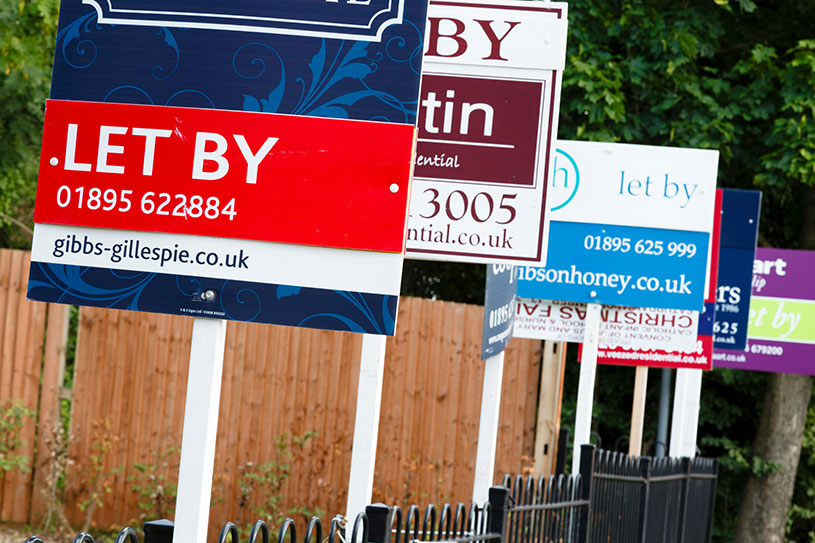Could you save money on your landlord insurance?
Join over 315,000 landlords like you with cover from £14.20 per month*
Get tailored quotes in 7 minutes
- UK-based expert support, online and on the phone
- Get covered and all your documents the same day
- Compare landlord insurance with legal cover from trusted brands

10% of customers pay the equivalent of £14.20 a month*
Compare quotes from leading brands






Rated 4.8/5
Based on 39,800 reviews
Claims paid in 24 hours
For 80% of settled claims
Why do you need landlord insurance?
Renting out and maintaining a property can be a full-time job for UK landlords, especially under changing regulations and legal requirements. From buildings and contents cover to tenant default protection, landlord insurance gives you peace of mind, knowing your house is in order if things go wrong.
- protection from big claims for injuries and property damage
- financial support if your property is too damaged to rent out
- up to £50,000 rental indemnity if you have to evict your tenants and recover rent
What does landlords’ insurance cover?
Most landlord policies start with buildings and contents insurance, plus accidental damage cover for smashes or spills. Rent protection is a key concern, so many landlords choose to add tenant default insurance. And remember, if a tenant or visitor claims you’re responsible for an injury – or damage to their possessions – property owners’ liability insurance can cover an expensive payout.
This content has been created for general information purposes. Make sure you have the right level of landlord insurance by checking your policy documentation for details. Read our full Terms and Conditions
What property types are covered with landlords’ insurance?
We provide cover for a range of property types, including:
- terraced and end terrace houses
- semi-detached houses
- detached houses
- bungalows
- maisonettes
- individual flats in purpose-built blocks or buildings
- individual flats in converted buildings or houses
- entire purpose-built buildings with multiple flats
- entire converted buildings or houses with multiple flats
How much does landlord insurance cost?
Find out how much you’ll pay by comparing prices from a range of trusted insurers. You choose what goes into your policy, so you only pay for what you need.
The cost of your landlord insurance policy will depend on the covers and cover levels you choose. The price also depends on property type, location and tenants. You can easily find out how much your landlord insurance will cost by running a quick quote online.
Prices start from £14.20 per month
Get your quotes in 7 minutes – prices are guaranteed for 30 days.
Get your tailored quotes in 7 minutes
*The price is for building and £2 million property owners’ liability insurance only – 10% of customers paid £170.45 or less annually in 1st Jan – 31st May 2024. Equivalent to £14.20 a month (and excludes the extra costs for paying monthly). If you complete a quote, more types of cover will be available, including up to £5 million of property owners’ liability insurance. These all have additional costs.
Example landlord quotes, real prices

£48.63 /month
£432.28 /year
A landlord renting to three professional people
- Residential
- Terraced / End terrace house
- 3 bedrooms
- 1 bathroom
- Built Between 1945 and 1979
- Over 5 years
- Occupied
- Based in Liverpool
Landlord buildings
£125,001 to £150,000
Landlords’ contents
£5,001 to £7,500
Property owners’ liability
£2,000,000

£177.45 /month
£1,577.31 /year
A landlord who owns the whole building, made up of self-contained flats, each with their own single tenancy agreement
- Residential
- Entire building with multiple flats converted building or house
- Built between 1945 and 1979
- Over 5 years
- Occupied
- Based in Cardiff
Landlord buildings
£750,001 to £1,000,000
Landlords’ contents
£30,001 to £50,000
Accidental Damage
Included
Property owners’ liability
£5,000,000
How we work out example quotes These examples are real quotes from our online system (created 19/07/2023). They’re based on a range of factors, like employees and location. Your own quote will be based on what you tell us about your property. Prices may go up or down from day to day, so the prices you’re quoted may differ to the ones you see here.
What kind of excess should I expect?
An excess is an amount you pay towards any claim you make on your insurance. For example, if your excess is £250 and you make a claim worth £1000, your payout will be a maximum of £750.
Insurance cover | Lowest excess | Highest excess |
|---|---|---|
Main Building | £100 | £2500 |
Fixtures & fittings | £100 | £2500 |
Contents | £100 | £2500 |
Accidental damage | £100 | £500 |
Landlord liability | £0 | £500 |
The figures above are for guidance only and any excess applying to your quote may differ. You’ll get a breakdown of the excesses for each quote when you compare with us.
How it works
Pick what goes into your policy
Only pay for what you need
Get prices from a range of insurers
Choose the best fit for you
Buy online in minutes
Get your documents the same day
Direct to
insurer
Highstreet
broker
Compare policies from a range of trusted insurers
Buy online or over the phone in minutes
How do I choose insurance?
Making sure you have the right type and level of landlord insurance can be the difference between getting a claim paid and having to cover the cost of an expensive accident yourself. Read our tips for guidance on what to consider when buying a policy.
Talk to an expert
Our team of UK-based insurance experts are here to help, Mon 09.00am – 05.30pm, Tues 09.00am – 05.30pm, Weds 09.00am – 05.30pm, Thurs 09.30am – 05.30pm, Fri 09.00am – 05.30pm, Sat 09.00am – 02.00pm

Call our team
How do claims work?
Unlike price comparison websites, we take the hassle out of claims for you. We know how important it is to get your business back on track quickly – and with a minimum of fuss. That’s why you get access to your dedicated claims any time, day or night. Call them on 0333 207 0560 or claim online. They’ll do their best to be fair and supportive.
£51 million in claims paid out in 2023
83% of claims were settled in 2023.
The figure above is rounded across our range of products. “Settled” covers paid, declined or withdrawn. Our claims process may vary for different products and operates on a ‘claim by claim’ basis. Our specialist partner Sedgwick will pay the claims on behalf of the insurer. Reviewed on 24/04/2024.
Example claim
Having buy-to-let insurance through Simply Business has saved landlords thousands of pounds when the unexpected happened.
Stuart saved more than £120,000
A fire in Stuart’s (not his real name) rear garden shed causes extensive smoke and property damage, and his tenant is rushed to hospital. Fire is covered by Stuart’s landlord insurance policy.
Insurance payout
£120,243.84
Covering the cost of fire damage and injuries
Stuart’s costs
£100
The excess amount stated in Stuart’s policy terms
Chosen by nearly 1 million small businesses and landlords
We started out as a team of five back in 2005. We’ve grown since then, with nearly 1 million customers across 1,500 trades now trusting us to provide their business insurance.
Landlord insurance FAQs
Whether you’re new to buying landlord insurance or you’ve been letting your property for a while, here are the answers to some commonly asked questions about landlords’ insurance. You can also check out our landlord insurance FAQs.
This will depend on your specific circumstances, the type of property you’re renting out, your tenants and various other factors. Right now, our landlord policy prices start from £9.53 per month.
To work this out, 10% of our customers paid up to £114.35 a year for a landlord buildings cover only policy between 1st April 2023 – 30th June 2023. Equivalent to £9.53 per month based on a monthly cost when paying for the policy in one annual payment. Paying monthly is usually more expensive as you’ll pay interest. Most customers pay more than this but some pay less.
Home insurance is required when you want to insure the home you’re living in against accidental loss or damage.
Landlord insurance is different – it’s required when you own a property that you rent out to a third party, and don’t live in yourself. It covers different insurance risks from a home policy, taking into account the type of tenant you rent to and how long you’ve owned the property. It also allows you to insure the property and protect yourself against things like loss of rental income, and malicious damage caused by your tenants.
You aren’t legally required to take out a specific landlord policy, but remember – a conventional home insurance policy won’t cover you for rental activities, and a mortgage lender will usually demand you have specific landlord cover in place, before you let your property.
Popular covers include property owners’ liability and contents insurance, for accidents on your property, plus buildings cover to protect the property itself.
As we’ve outlined above, there’s currently no legal obligation to take out a dedicated landlord insurance policy. However, a home insurance policy won’t cover you for the specific risks you and your tenants face, and a mortgage lender will usually require you to have buy-to-let insurance in place too, before renting out your property.
Landlord contents insurance can cover the cost of repairing or replacing household items like furniture and appliances if they’re damaged, destroyed or stolen. Landlord contents insurance only covers things that belong to the landlord – tenants need to take out their own contents insurance.
Imagine someone broke into your rental property and stole the television you’d provided for your tenants, or the property was flooded and the sofa suffered water damage. Your landlord contents insurance could cover the cost of replacing the TV or the sofa, minus any excess (the contribution you make towards the cost of the claim).
When you choose your level of landlord contents insurance, you need to estimate what it would cost to replace all of the household items you provide to your tenants.
What isn’t covered by landlord contents insurance
It’s important to understand that landlord contents insurance doesn’t cover gradual ‘wear and tear’ of furniture over time, or anything that belongs to the tenants. Your tenants will need to take out their own contents insurance policy to cover their possessions.
You may also want to include accidental damage insurance to make sure you’re covered if an item is accidentally damaged by a tenant or visitor, for example if wine is spilt on the sofa or an expensive vase is knocked over and broken.
If you’ve provided furniture and other contents for your tenants – maybe even a TV or art for the walls – your property is known as ‘furnished’, and protection is key for most landlords. You can buy contents insurance as part of your landlord insurance policy, just add it when completing your landlord insurance quote.
Landlord property insurance is another term for landlord insurance, which covers risks associated with rental properties. Landlord property insurance includes buildings and contents insurance, landlords’ liability insurance, and other covers to protect a landlord’s rental property.
When you’re considering landlord property insurance, what probably springs to mind is protecting the bricks and mortar of your rental property from a disaster like a fire or flood.
These risks are covered by landlord building insurance, but this is potentially only one part of a comprehensive landlord insurance policy.
Other landlord property insurance covers include landlord contents insurance, which is especially important if you rent a furnished property, as it can pay for the repair or replacement of your furniture or possessions if they’re damaged or destroyed.
Another important landlord property insurance cover is property owners’ liability insurance, which can cover legal fees and compensation costs if someone (like a tenant or visitor) sues you for injury or damage that they blame on your rental property.
There are other landlord insurance types available too, depending on which rental property-related risks you’re keen to cover. There’s tenant default insurance to cover your rent for a period if your tenants don’t pay, and legal expenses insurance to cover the cost of court proceedings.
Rent guarantee and tenant default cover are often misunderstood as being the same thing. Both of these covers are designed to protect a landlord’s income if their tenant stops paying rent – however, there are key differences which you should be aware of before adding either protection to your landlord insurance policy.
Tenant default cover is designed to pay you the rent you’re owed, if you decide to evict tenants who are behind on the rent. Among other things, you’ll need to serve a Section 21 or Section 8 notice, or both, to claim on this type of cover.
Rent guarantee insurance is a different form of protection. It can include cover for properties left unoccupied for a period of time between tenants, as well as instances where the property is uninhabitable due to renovation work, malicious damage or disasters like fire and flooding. It’s often an option you can discuss with a letting agent, who specialises in managing the property for you.
Simply Business provides tenant default cover as an option for your landlords’ insurance policy, but we don’t currently include rent guarantee in our quotes.
Accidental damage insurance can protect your property and contents against one-off incidents like spillages or breakages. Accidental damage insurance can be added to your landlord insurance policy to cover the repair or replacement cost if you, a tenant or a visitor accidentally damages something.
You will usually buy landlord accidental damage insurance alongside your landlord buildings insurance and landlords contents insurance.
When you’re buying this insurance, you need to estimate the rebuild value of your property and the replacement value of your contents as accurately as possible, so that you’re fully covered if you come to make a claim.
What does accidental damage insurance cover?
Accidental damage insurance can cover the cost of repairing or replacing your property or contents.
It could cover the cost of replacing your carpet if a tenant spilt red wine over it, for example, or the cost of repairing a wall if you damaged it while putting up shelves.
It won’t cover gradual wear and tear over time, and it also doesn’t cover items belonging to your tenants.
Do I need accidental damage insurance?
Some landlord insurance policies cover accidental damage under the buildings and contents part of the policy, so you may not need to buy separate accidental damage insurance. Check your policy documents if you’re not sure.
You may think you don’t need accidental damage insurance because the damage deposit you’ve taken from your tenants could cover the cost of any damage. But remember that it’s likely you won’t be able to access this money until your tenants move out, and also the cost of repair or replacement may be higher than the damage deposit.
We create this content for general information purposes and it should not be taken as advice. Always check policy documentation for details and seek professional advice. Read our full Terms and Conditions



